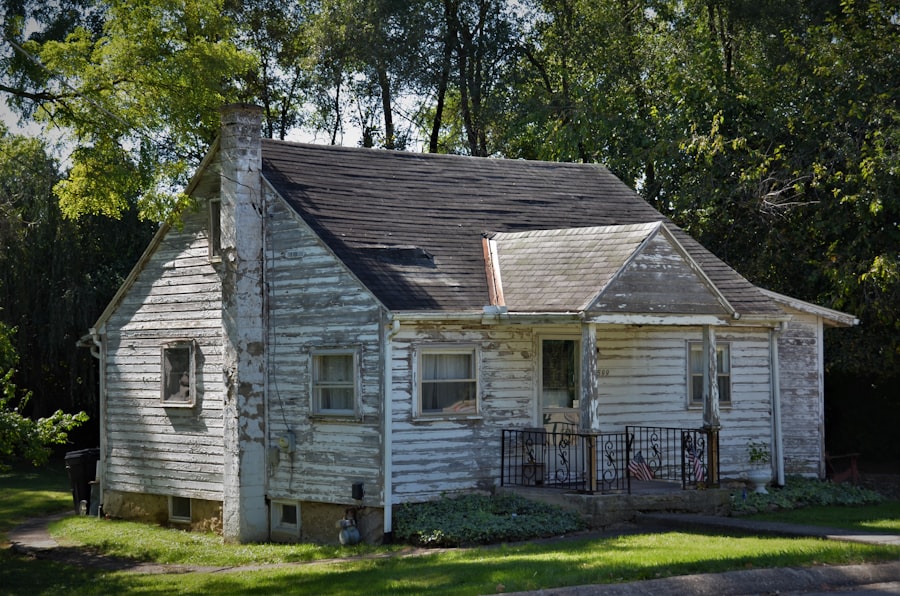New York’s property tax laws are intricate and multifaceted, reflecting the state’s diverse real estate landscape. Property taxes in New York are primarily levied at the local level, with municipalities and school districts having the authority to set their own rates. This decentralized approach means that property owners must navigate a patchwork of regulations that can vary significantly from one locality to another.
The state employs a system of assessed value, where properties are evaluated to determine their worth for tax purposes. This assessed value is then multiplied by the local tax rate to calculate the property tax owed. In New York City, the property tax system is further complicated by the classification of properties into different categories, such as residential, commercial, and industrial.
Each class has its own assessment methods and tax rates, which can lead to confusion among property owners. Additionally, the state mandates that properties be reassessed periodically, but the frequency and methodology of these assessments can differ widely across jurisdictions. Understanding these nuances is crucial for property owners who wish to manage their tax liabilities effectively.
Key Takeaways
- Understanding New York Property Tax Laws
- Property tax laws in New York can be complex and vary by location, so it’s important to familiarize yourself with the specific regulations in your area.
- Common Property Tax Challenges in New York
- Challenges such as over-assessment, incorrect property classification, and lack of transparency in the assessment process are common in New York.
- Appealing Property Tax Assessments
- Property owners have the right to appeal their tax assessments if they believe they are inaccurate or unfair, and the process typically involves providing evidence to support the appeal.
- Hiring a Property Tax Attorney
- Consider hiring a property tax attorney with experience in New York tax laws to help navigate the appeals process and ensure the best possible outcome.
- Gathering Evidence for a Property Tax Appeal
- It’s crucial to gather evidence such as recent property appraisals, comparable sales data, and any documentation that supports your case for a tax assessment appeal.
Common Property Tax Challenges in New York
Property owners in New York often face a myriad of challenges when it comes to property taxes. One of the most prevalent issues is the disparity between market value and assessed value. Many property owners find that their properties are assessed at values significantly higher than what they could realistically sell for in the current market.
This discrepancy can lead to inflated tax bills that strain homeowners’ finances and create a sense of injustice among those who feel they are being overtaxed. Another common challenge is the complexity of the appeals process. Many property owners are unaware of their rights or the steps they need to take to contest an assessment.
The process can be daunting, with strict deadlines and procedural requirements that must be met. Additionally, property owners may struggle to gather the necessary evidence to support their claims, further complicating their ability to successfully appeal their assessments. These challenges can create a sense of frustration and helplessness among property owners who feel they are at the mercy of an opaque system.
Appealing Property Tax Assessments

When property owners believe their assessments are unfair, they have the right to appeal. The appeal process in New York typically begins with a review of the assessment by the local assessor’s office. Property owners can request a meeting to discuss their concerns and present any evidence they have gathered.
If this initial review does not yield satisfactory results, property owners can file a formal appeal with their local Board of Assessment Review (BAR) or the New York City Tax Commission, depending on their location. The appeal process requires careful attention to detail and adherence to specific timelines. Property owners must be prepared to articulate why they believe their assessment is incorrect and provide supporting documentation.
This may include recent sales data for comparable properties, photographs, or expert appraisals. The burden of proof lies with the property owner, making it essential to present a compelling case. Successful appeals can lead to significant reductions in property taxes, providing much-needed relief for homeowners facing financial strain.
Hiring a Property Tax Attorney
| Metrics | Data |
|---|---|
| Success Rate | 85% |
| Cost | Varies |
| Timeframe | 3-6 months |
| Experience | 5+ years |
For many property owners, navigating the complexities of property tax appeals can be overwhelming. In such cases, hiring a property tax attorney may be a prudent decision. These legal professionals specialize in property tax law and can provide invaluable guidance throughout the appeals process.
A knowledgeable attorney can help property owners understand their rights, assess the merits of their case, and develop a strategic approach to challenging an assessment. Moreover, a property tax attorney can represent clients during hearings and negotiations with local assessors or boards. Their expertise in legal procedures and familiarity with local regulations can significantly enhance a property owner’s chances of success.
While hiring an attorney involves additional costs, many property owners find that the potential savings from a successful appeal far outweighs these expenses. Ultimately, enlisting professional help can alleviate stress and increase the likelihood of achieving a favorable outcome.
Gathering Evidence for a Property Tax Appeal
A successful property tax appeal hinges on the quality and relevance of the evidence presented. Property owners must gather comprehensive documentation that supports their claim for a lower assessment. This evidence may include recent sales data for comparable properties in the area, which can demonstrate that the assessed value is inconsistent with market trends.
Additionally, photographs of the property and its condition can provide visual context that supports an argument for a reduced assessment. In some cases, hiring an independent appraiser may be beneficial. An appraiser can provide a professional valuation of the property, offering an objective perspective that may carry weight during the appeal process.
By presenting a well-researched and organized case, property owners can significantly improve their chances of success in appealing their assessments.
Deadlines for Filing Property Tax Appeals in New York

Timeliness is critical when it comes to filing property tax appeals in New York. Each locality has specific deadlines that must be adhered to in order for an appeal to be considered valid. Generally, property owners must file their appeals within a certain timeframe following the receipt of their assessment notice.
In New York City, for example, the deadline for filing an appeal with the Tax Commission is typically 30 days from the date of the notice.
Therefore, it is essential for property owners to stay informed about important dates and ensure that all necessary paperwork is submitted on time.
Keeping meticulous records and setting reminders can help prevent any oversights that could jeopardize an appeal.
The Role of the New York City Tax Commission
The New York City Tax Commission plays a pivotal role in overseeing property tax assessments within the city. This independent agency is responsible for reviewing appeals filed by property owners who believe their assessments are inaccurate or unfair. The commission operates as an impartial body that evaluates evidence presented by both property owners and assessors before making determinations on appeals.
The Tax Commission’s decisions can have significant implications for property owners, as successful appeals may result in reduced assessments and lower tax bills. The commission also serves as a resource for property owners seeking information about the appeals process and their rights under New York law. By providing transparency and oversight, the Tax Commission helps ensure that property tax assessments are conducted fairly and equitably across New York City.
Exploring Property Tax Exemptions in New York
In addition to appealing assessments, property owners in New York may also be eligible for various tax exemptions that can reduce their overall tax burden. These exemptions are designed to provide financial relief to specific groups, such as seniors, veterans, and low-income homeowners. For instance, the School Tax Relief (STAR) program offers exemptions for eligible homeowners based on income levels and age.
Other exemptions include those for disabled individuals and certain types of nonprofit organizations. Understanding these exemptions is crucial for property owners looking to minimize their tax liabilities. By researching available programs and determining eligibility, homeowners can take advantage of opportunities that may significantly lower their annual tax bills.
Navigating Property Tax Increases in New York
Property tax increases are often a source of concern for homeowners in New York, particularly in areas experiencing rapid development or rising real estate values. When municipalities raise tax rates or reassess properties at higher values, homeowners may find themselves facing unexpectedly high bills. Understanding how these increases are determined is essential for property owners who wish to advocate for fair taxation practices.
In many cases, local governments justify tax increases by citing rising costs associated with public services such as education, infrastructure maintenance, and emergency services. However, homeowners may feel that these justifications do not adequately reflect their financial realities. Engaging with local government officials and participating in community discussions about budget priorities can empower homeowners to voice their concerns regarding tax increases and advocate for more equitable solutions.
Understanding Property Tax Relief Programs in New York
New York offers several property tax relief programs aimed at assisting homeowners who may be struggling with high tax burdens. These programs vary by locality but often include initiatives designed to provide financial assistance or deferment options for eligible residents. For example, some municipalities offer payment plans that allow homeowners to spread out their tax payments over time rather than paying a lump sum.
Additionally, programs like the Enhanced STAR exemption provide increased benefits for senior citizens who meet specific income criteria. By exploring these relief options, homeowners can find ways to alleviate some of the financial pressures associated with rising property taxes. Staying informed about available programs and understanding eligibility requirements is crucial for maximizing potential benefits.
Tips for Successfully Navigating New York Property Tax Challenges
Successfully navigating New York’s complex property tax landscape requires diligence and proactive engagement from homeowners. One key tip is to stay informed about local tax laws and changes in assessment practices. Regularly reviewing assessment notices and understanding how local rates are determined can empower homeowners to identify discrepancies early on.
Another important strategy is to build a network of resources, including local advocacy groups or community organizations focused on property rights issues. These groups often provide valuable information about upcoming changes in legislation or available relief programs that may benefit homeowners. Additionally, seeking professional assistance when needed—whether through hiring an attorney or consulting with real estate experts—can enhance a homeowner’s ability to effectively address challenges related to property taxes.
By taking these proactive steps and remaining engaged with local governance processes, homeowners in New York can better navigate the complexities of property taxation while advocating for fair treatment within this intricate system.
New York property tax issues have been a topic of significant concern for both residents and policymakers, as the state grapples with balancing revenue needs and taxpayer burdens. A related article that delves into the complexities of property tax assessments and their impact on homeowners can be found on MyGeoQuest. This article provides insights into how property taxes are calculated and the challenges faced by property owners in New York. For more detailed information, you can read the full article by visiting this link.
WATCH THIS! The Real Cost of NYC Living: Your Wallet, Sanity, and Subway Survival Skills
FAQs
What are property taxes?
Property taxes are taxes levied on real estate by local governments, typically based on the property’s value. These taxes are used to fund local services such as schools, roads, and public safety.
How are property taxes calculated in New York?
In New York, property taxes are calculated based on the assessed value of the property and the local tax rate. The assessed value is determined by the local assessor and is often a percentage of the property’s market value.
What are some common property tax issues in New York?
Some common property tax issues in New York include disputes over the assessed value of the property, exemptions and abatements, and challenges related to changes in property tax laws and regulations.
How can property owners in New York address property tax issues?
Property owners in New York can address property tax issues by appealing the assessed value of their property, applying for exemptions and abatements, and staying informed about changes in property tax laws and regulations.
What are some potential consequences of unresolved property tax issues in New York?
Unresolved property tax issues in New York can lead to higher tax bills, financial strain on property owners, and potential legal action by local tax authorities. It’s important for property owners to address these issues promptly.
